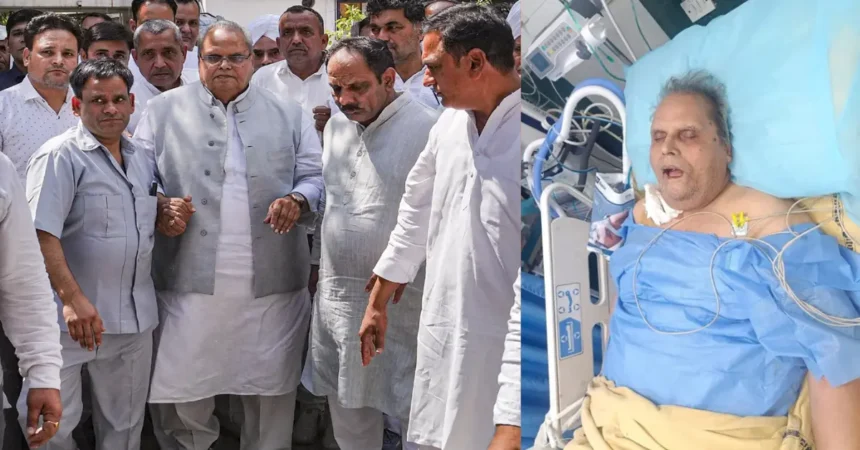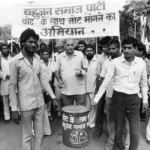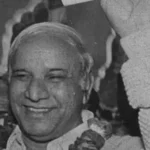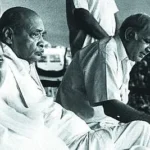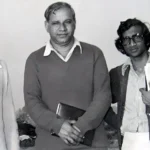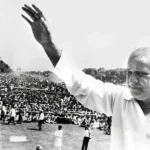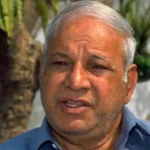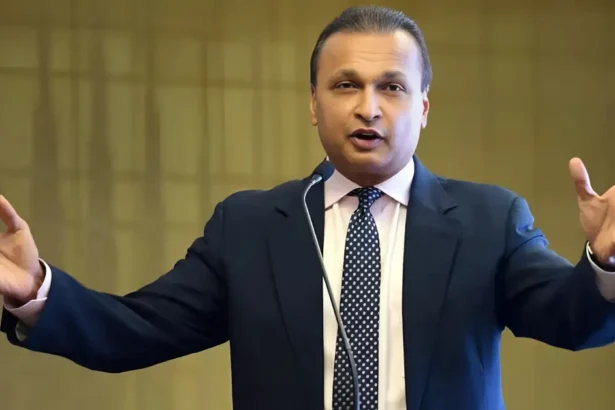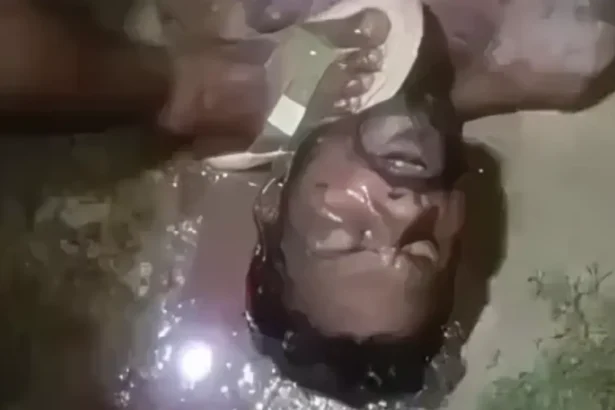The nation awakens to somber news as Satyapal Malik death has been confirmed on August 5, 2025, marking the end of an era in Indian politics. At 79, the fearless former Governor of Jammu & Kashmir breathed his last at Ram Manohar Lohia Hospital in Delhi, leaving behind a legacy that spans five decades of unwavering service, controversial decisions, and uncompromising truth-telling. For millions across India, especially in Uttar Pradesh where his roots run deep, his passing represents not just the loss of a political leader, but the silencing of one of the few voices that dared to speak truth to power, regardless of consequences.
- Early Life and Family Roots
- Quick Facts: Family Background
- Education and Academic Foundation
- Quick Facts: Education
- Personal Life and Family
- Quick Facts: Personal Life
- Political Journey and Career Evolution
- Quick Facts: Political Evolution
- Gubernatorial Career and Major Achievements
- Quick Facts: Gubernatorial Service
- Major Controversies and Outspoken Positions
- Pulwama Attack Allegations
- Kiru Hydroelectric Project Corruption Case
- Farmers’ Movement Support
- Quick Facts: Major Controversies
- Net Worth and Financial Profile
- Quick Facts: Financial Profile (2004)
- Final Years and Health Struggles
- Quick Facts: Final Years
- Political Tributes and Legacy Assessment
- FAQ Section
- Conclusion: A Life of Principle and Controversy
Early Life and Family Roots
Born on July 24, 1946, in the small village of Hisawada in Baghpat district, Uttar Pradesh, Satyapal Malik’s story began in tragedy and resilience. Coming from a humble Jat family, his world changed dramatically when his father Budh Singh passed away when Malik was merely 18 months old. Raised primarily by his mother Jagbeer Kaur (also known as Jugni Devi), young Satyapal learned early lessons about hardship, determination, and the importance of standing up for what’s right.
His ancestral connections trace back approximately 250 years to village Kalhawad (Kharawad) in Rohtak district, Haryana, from where his forefathers migrated to establish themselves in Uttar Pradesh. This deep-rooted connection to rural India would profoundly influence his political worldview and unwavering commitment to farmers’ rights throughout his career.
Quick Facts: Family Background
| Aspect | Details |
|---|---|
| Date of Birth | July 24, 1946 |
| Birthplace | Hisawada, Baghpat, Uttar Pradesh |
| Father | Budh Singh (died when Malik was 18 months old) |
| Mother | Jagbeer Kaur/Jugni Devi |
| Caste | Jat |
| Ancestral Village | Kalhawad, Rohtak, Haryana |
Education and Academic Foundation
Despite financial constraints following his father’s early death, Satyapal Malik excelled academically and pursued higher education with determination. He completed his Bachelor of Science (B.Sc.) degree in 1967 from Meerut College, followed by a Bachelor of Laws (LLB) in 1970 from Meerut University (now Chaudhary Charan Singh University).
His academic journey was marked by leadership from the very beginning. During 1966-67, he served as President of Meerut College Students Union, and later in 1968-69, he was elected President of the Students Union of Meerut University. This early exposure to student politics would prove to be the foundation of his lifelong political career, teaching him the art of mobilization, public speaking, and grassroots organization.
Quick Facts: Education
| Achievement | Year | Institution |
|---|---|---|
| B.Sc. Degree | 1967 | Meerut College |
| LLB Degree | 1970 | Meerut University |
| College Union President | 1966-67 | Meerut College |
| University Union President | 1968-69 | Meerut University |
Personal Life and Family
In December 1970, Satyapal Malik married Iqbal Malik (née Iqbal Kaur Sandhu), a respected researcher and educator who later became a noted environmentalist. Their marriage represented a union of intellectual equals, with both partners pursuing meaningful careers while maintaining strong family values.
The couple was blessed with a son, Dev Kabir Malik, who followed a creative path and became a renowned graphic designer after graduating from the prestigious National Institute of Design. Dev Kabir’s wife, Nivedita Chandra, is an alumna of the Indian Institute of Technology, reflecting the family’s emphasis on education and achievement.
Throughout his demanding political career, Malik maintained strong family bonds while keeping his personal life largely private. His interests extended beyond politics to include historical and archaeological studies, music, photography, and poetry. This intellectual curiosity and artistic sensibility often reflected in his nuanced approach to governance and public service.
Quick Facts: Personal Life
| Aspect | Details |
|---|---|
| Marriage Date | December 14, 1970 |
| Wife | Iqbal Malik (researcher/environmentalist) |
| Son | Dev Kabir Malik (graphic designer) |
| Daughter-in-law | Nivedita Chandra (IIT graduate) |
| Hobbies | History, archaeology, music, photography, poetry |
Political Journey and Career Evolution
Satyapal Malik’s political journey began with his inspiration from socialist leader Ram Manohar Lohia’s ideology in 1965-66. His first major electoral success came in 1974 when he won the Uttar Pradesh Legislative Assembly seat from Baghpat on a Bharatiya Kranti Dal ticket led by Chaudhary Charan Singh. This victory, achieved with 42.4% of votes against Communist Party candidate Acharya Deepankar, marked the beginning of a remarkable five-decade political career.
His political journey showcased remarkable adaptability and principled decision-making. When the Bharatiya Lok Dal was formed in 1975, he became its All-India General Secretary. In 1980, he entered the Rajya Sabha representing Lok Dal, beginning his national political career.
The defining characteristic of Malik’s political journey was his willingness to change parties based on principles rather than opportunism. In 1984, he joined the Indian National Congress and was re-elected to the Rajya Sabha in 1986, also serving as General Secretary of the Uttar Pradesh Congress Committee. However, his conscience led him to resign in 1987 over the Bofors scandal, demonstrating his zero-tolerance approach to corruption.
In 1988, he joined VP Singh’s Janata Dal and was elected to the Lok Sabha from Aligarh in 1989, where he served as Union Minister of State for Parliamentary Affairs and Tourism. After various political transitions, he finally joined the BJP in 2004, where he was appointed National Vice President in 2012 and reappointed in 2014.
Quick Facts: Political Evolution
| Year | Position/Achievement | Party |
|---|---|---|
| 1974-77 | MLA, Baghpat | Bharatiya Kranti Dal |
| 1975 | All-India General Secretary | Lok Dal |
| 1980-86 | Rajya Sabha MP | Lok Dal |
| 1984 | Party Switch | Indian National Congress |
| 1986-89 | Rajya Sabha MP | Congress |
| 1989-91 | Lok Sabha MP, Aligarh | Janata Dal |
| 1989 | Union Minister of State | Janata Dal |
| 2004 | Party Switch | BJP |
| 2012 | National Vice President | BJP |
Gubernatorial Career and Major Achievements
Satyapal Malik’s appointment as Governor of Bihar in September 2017 marked the beginning of an unprecedented gubernatorial career that would see him serve in multiple states during critical periods in Indian history. His brief additional charge as Governor of Odisha from March to May 2018 demonstrated his administrative capabilities.
However, it was his appointment as the 10th and final Governor of Jammu and Kashmir from August 2018 to October 2019 that would define his legacy forever. During his tenure, one of the most significant constitutional changes in post-independence India occurred—the abrogation of Article 370 on August 5, 2019. This historic decision stripped Jammu and Kashmir of its special status and bifurcated the state into two Union Territories: Jammu & Kashmir and Ladakh.
Following his J&K tenure, Malik served as the 18th Governor of Goa (November 2019 to August 2020) and the 21st Governor of Meghalaya (August 2020 to October 2022). This remarkable journey across five states in five years showcased his administrative versatility and the government’s trust in his capabilities.
Quick Facts: Gubernatorial Service
| State | Tenure | Key Events |
|---|---|---|
| Bihar | Sept 2017 – Aug 2018 | Administrative reforms |
| Odisha (Additional) | Mar – May 2018 | Interim charge |
| Jammu & Kashmir | Aug 2018 – Oct 2019 | Article 370 abrogation |
| Goa | Nov 2019 – Aug 2020 | Post-J&K tenure |
| Meghalaya | Aug 2020 – Oct 2022 | Final gubernatorial role |
Major Controversies and Outspoken Positions
Satyapal Malik’s later years were marked by increasingly bold criticism of the very government that had appointed him to high constitutional positions. His transformation from a loyal BJP appointee to one of its most vocal critics created significant political turbulence and media attention.
Pulwama Attack Allegations
In April 2023, during an explosive interview, Malik made serious allegations about the 2019 Pulwama attack that killed 40 CRPF personnel. He claimed that the attack could have been prevented if the CRPF’s request for aircraft transport had been approved by the Home Ministry. Most controversially, he alleged that Prime Minister Narendra Modi and NSA Ajit Doval instructed him to remain silent about these security lapses.
Malik’s statement that he “realized that all the onus of the attack will be put on Pakistan” and his suggestion that this was done for electoral benefits created a massive political storm. Pakistan’s Foreign Ministry seized upon these comments, claiming they “vindicated” Pakistan’s position on the attack.
Kiru Hydroelectric Project Corruption Case
Perhaps the most legally significant controversy involved Malik’s allegations about the Kiru Hydroelectric Power Project. In 2021, while serving as Meghalaya Governor, he publicly claimed that he was offered a bribe of ₹300 crore to approve files related to this ₹2,200 crore project. He also alleged the involvement of an RSS leader in the corruption scheme.
The CBI registered an FIR in 2022 based on his own complaints, but in a dramatic turn of events, filed a chargesheet against Malik himself and seven others on May 22, 2025—ironically, just months before his death. The charges included criminal conspiracy under Section 120-B of the Ranbir Penal Code and provisions of the J&K Prevention of Corruption Act.
Farmers’ Movement Support
Malik emerged as a vocal supporter of the farmers’ protests against the three controversial farm laws. At the Global Jat Summit in November 2021, he made inflammatory remarks warning the government about the resolve of Sikh and Jat communities. His support for farmers often put him at odds with the BJP leadership, further straining his relationship with the party.
Quick Facts: Major Controversies
| Issue | Year | Key Allegation |
|---|---|---|
| Pulwama Attack | 2023 | Security lapses covered up |
| Kiru Project | 2021-2025 | ₹300 crore bribe offer |
| Farmers’ Protest | 2021 | Government warned about Sikh/Jat resolve |
| CBI Chargesheet | May 2025 | Criminal conspiracy charges |
Net Worth and Financial Profile
Unlike many contemporary politicians, Satyapal Malik maintained a remarkably modest financial profile throughout his career. According to his 2004 electoral affidavit when he contested the Lok Sabha election from Baghpat on a BJP ticket, his total assets were valued at approximately ₹76 lakh.
His declared assets included ₹19 lakh in bank deposits, ₹2.10 lakh in bonds and shares, 180 grams of gold jewelry, and ₹22 lakh in movable assets. His immovable property consisted of 21.2 acres of agricultural land valued at ₹13 lakh and a building worth ₹40 lakh. Against these assets, he had liabilities of over ₹3 lakh.
Even by 2017 standards, when he filed an ITR showing an annual income of just ₹1.33 lakh, Malik’s financial profile remained extraordinarily modest for a person of his political stature. This simplicity reflected his rural roots and principled approach to public service.
Quick Facts: Financial Profile (2004)
| Asset Category | Value |
|---|---|
| Bank Deposits | ₹19 lakh |
| Bonds/Shares | ₹2.10 lakh |
| Gold Jewelry | 180 grams |
| Agricultural Land | 21.2 acres (₹13 lakh) |
| Building | ₹40 lakh |
| Total Assets | ₹76 lakh |
| Liabilities | ₹3+ lakh |
Final Years and Health Struggles
The final chapter of Satyapal Malik’s life was marked by serious health challenges and legal troubles. Since May 11, 2025, he had been admitted to Ram Manohar Lohia Hospital in Delhi with multiple complications including severe urinary tract infection, kidney failure, diabetic complications, hypertension, morbid obesity, and obstructive sleep apnea.
Despite his deteriorating health, the legal pressures continued. On February 22, 2024, the CBI conducted raids at his Delhi residence in connection with the Kiru project case. From his hospital bed, he defiantly posted on social media: “I am a farmer’s son, I will neither be afraid nor bow down.”
The final irony came when the CBI filed its chargesheet against him on May 22, 2025, while he lay critically ill in the hospital. His response from the hospital bed was characteristic of his lifelong defiance: “I am getting calls from many of my well-wishers which I am unable to take. My condition is very bad right now.”
On August 5, 2025—exactly six years after the abrogation of Article 370 that defined his gubernatorial legacy—Satyapal Malik death occurred at 1:12 PM, bringing an end to his remarkable journey.
Quick Facts: Final Years
| Date | Event |
|---|---|
| February 22, 2024 | CBI raids his residence |
| May 11, 2025 | Admitted to RML Hospital |
| May 22, 2025 | CBI files chargesheet against him |
| August 5, 2025 | Death at 1:12 PM |
Political Tributes and Legacy Assessment
The news of Satyapal Malik death prompted an outpouring of tributes from across the political spectrum, reflecting the complex legacy of a man who defied easy categorization. Congress MP Priyanka Gandhi called him “the vocal voice of the country’s farmers,” while West Bengal Chief Minister Mamata Banerjee praised his courage in “uttering some truths, which few dare to do” and his support for farmers’ protests.
Banerjee’s tribute was particularly poignant: “Satya Pal ji spoke bravely in support of Indian farmers’ protests and in support of some unpleasant truth involved in case of the Pulwama attack. Such courage deserves our salute, and I offer that salute again, today.”
His legacy remains deeply complex—remembered simultaneously as the Governor who presided over Article 370’s abrogation and as the whistleblower who challenged government narratives on national security and corruption. His transformation from establishment insider to vocal critic illustrated the tension between institutional loyalty and individual conscience that defines democratic governance.
FAQ Section
| Question | Answer |
|---|---|
| When did Satyapal Malik die? | Satyapal Malik died on August 5, 2025, at 1:12 PM at Ram Manohar Lohia Hospital, Delhi. |
| What was Satyapal Malik’s age at death? | He was 79 years old at the time of his death. |
| What caused Satyapal Malik’s death? | He died due to prolonged illness including kidney failure, urinary tract infection, and multiple organ complications. |
| Which states did Satyapal Malik serve as Governor? | He served as Governor of Bihar, Odisha (additional charge), Jammu & Kashmir, Goa, and Meghalaya. |
| What was Satyapal Malik’s role in Article 370 abrogation? | As J&K Governor from 2018-2019, he presided over the historic abrogation of Article 370 on August 5, 2019. |
| What controversies was Satyapal Malik involved in? | Major controversies included Pulwama attack allegations and Kiru hydroelectric project corruption case. |
| What was Satyapal Malik’s educational background? | He had B.Sc. and LLB degrees from Meerut University and was a student union leader. |
| Who was Satyapal Malik’s family? | He was married to Iqbal Malik (environmentalist) and had a son Dev Kabir Malik (graphic designer). |
| What was Satyapal Malik’s net worth? | According to 2004 records, his total assets were approximately ₹76 lakh, reflecting a modest lifestyle. |
| What political parties did Satyapal Malik belong to? | He was associated with BKD, Lok Dal, Congress, Janata Dal, and finally BJP over his five-decade career. |
Conclusion: A Life of Principle and Controversy
Satyapal Malik death marks the end of an extraordinary political journey that embodied both the aspirations and contradictions of modern Indian democracy. From the dusty fields of Baghpat to the corridors of Raj Bhavan, his life story represents the possibility of rising from humble beginnings to positions of constitutional authority while never forgetting one’s roots or compromising core principles.
His legacy will forever be intertwined with the historic abrogation of Article 370, but equally remembered will be his courage to speak uncomfortable truths about security failures, government accountability, and institutional integrity. In an era of political conformity, Malik stood as a rare example of someone willing to risk career and reputation for the sake of transparency and justice.
As we reflect on his remarkable journey, let us remember that democracy thrives not on blind loyalty but on the courage of individuals like Satyapal Malik who dare to question authority, challenge narratives, and speak for those who cannot speak for themselves. His life reminds us that true service to the nation sometimes requires standing against those who claim to represent it.
Share your thoughts and memories of Satyapal Malik in the comments below. How do you think his legacy will be remembered in Indian political history? Let’s keep the conversation alive and honor the memory of a man who never stopped fighting for truth and justice.



